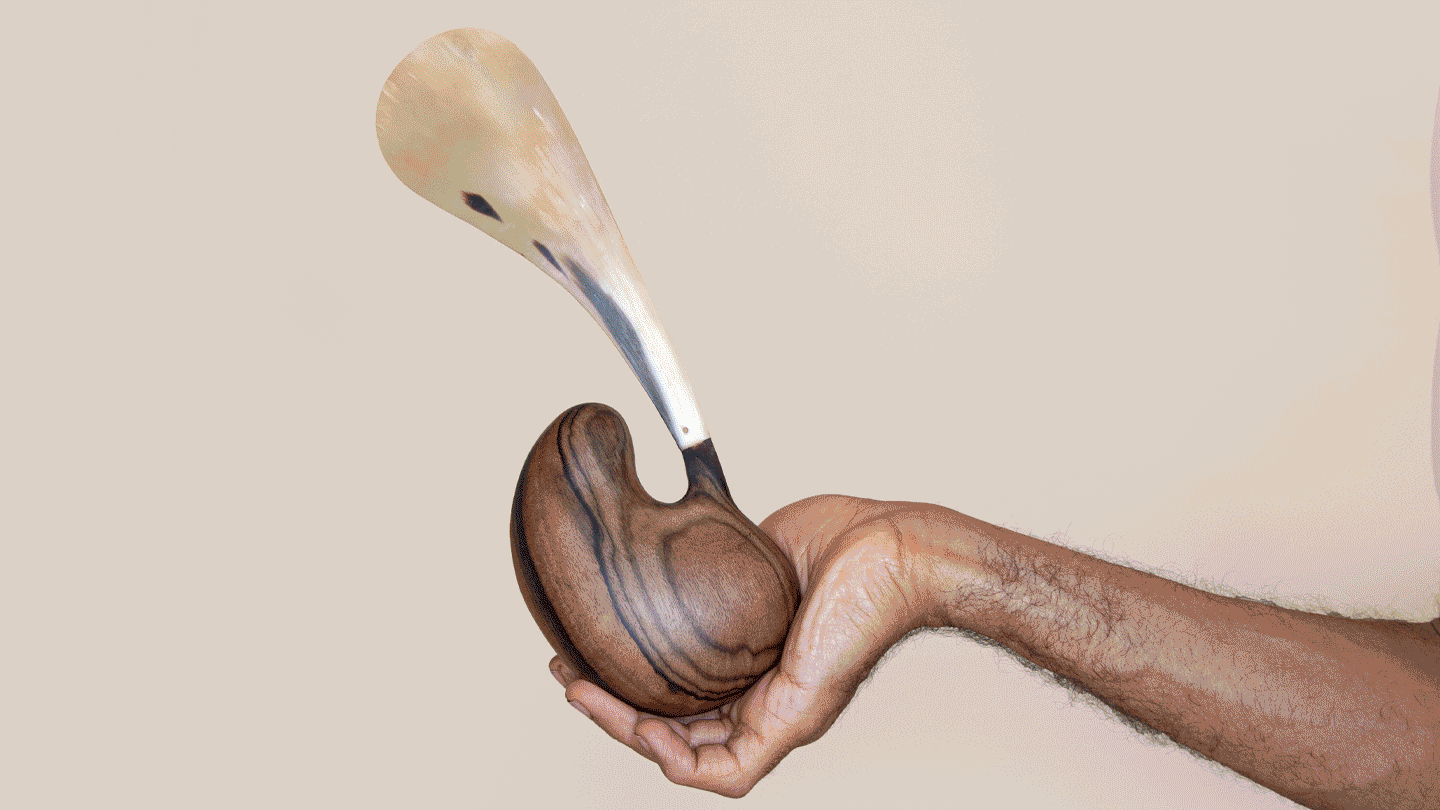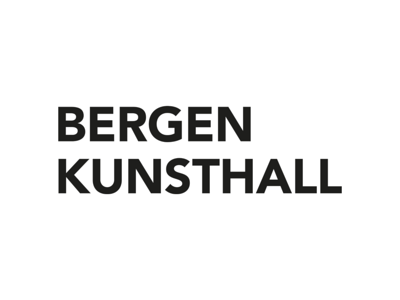Loretta Fahrenholz: Trash The Musical
September 15, 2023–January 7, 2024
Ahmed Umar: Glowing Phalanges
Bergen Kunsthall is proud to present the solo exhibition Glowing Phalanges by the Sudanese-Norwegian artist Ahmed Umar. The exhibition is a continuation of the artist’s ongoing and ever-growing project Forbidden Prayers and includes an installation of 99 sculptural works in various materials, spread out across the four main galleries of Bergen Kunsthall. Each work is held by an acrylic cast of the artist’s right hand, suggesting the use as a prayer bead – a ritualistic use to count or contemplate during prayer.
For several years, Umar has collected materials for these works originating from commercial souvenirs from African and Asian countries, such as ebony, red palm, leopard skin and buffalo horn. In addition, several of the sculptures also consist of organic material from the Norwegian geography, such as reindeer horns and whale skeleton. Juxtaposing materials with cultural meaning from different cultural contexts, the sculptural objects give form to the ways in which contemporary biographies as well as materials often transgress normative notions of identity.
Umar grew up in a conservative Wahhabi community in Mecca, Saudi Arabia, with his parents from Sudan practicing Sufism. Though both Wahhabism and Sufism are branches of Islam, the difference between the two is considerable and often contradictory. The exhibition’s title, Glowing Phalanges, points to Umar’s upbringing between these two faiths. In Sudan, the use of prayer chains and amulets is deeply rooted in Sufi traditions, while in Wahhabism, the knuckles of the right hand are used in prayer. As a reward for this practice, the legend says that the phalanges will glow and light up the darkness on Judgment Day.
Ahmed Umar lives and works in Oslo.
Loretta Fahrenholz: Trash The Musical
Bergen Kunsthall is proud to present an exhibition by Loretta Fahrenholz, featuring her new film Trash The Musical (2023). The 37-minute-long film was produced over the past two years in collaboration with performance artist and actor Alicia McDaid. In the film, we follow McDaid from Los Angeles to Philadelphia to clear out the house of her recently deceased uncle. During the months needed to sort the chaotic property’s contents – artworks, various collections of things and personal items amassed over decades – the house becomes her daily stage for performing musical numbers and bizarre self-presentations. The film is made mostly from material shot by McDaid, including scenes that were initially made for social media platforms used by McDaid as outlets for her performative production as well as personal exchange. Surrounded by her uncle’s belongings, McDaid slips into the roles of celebrities and movie characters, performing makeup tutorials, TikTok dances and social-critical rants, edited by Fahrenholz into a wild post-cinematic collage.
Fahrenholz is known for films and photographic works often produced through long-term collaborations. Resisting categorization, Fahrenholz’s films experiment with different genres and cinematic styles, from documentary to fiction, and explore their visual and narrative ideologies. Distinct cultural contexts appear in her work as research fields to examine the ways in which subjects create relationships to larger social systems, such as politics or economy.
In Trash The Musical, the house and its contents provide a stage for McDaid but also function as a mirror. Working through the mess, she radically explores personal anxieties and questions of ageing, unfulfilled dreams, and the difference between art and trash. The film is edited from enormous amounts of footage, which Fahrenholz processed as a way of making film within the changing conditions of moving image production. While most scenes work with elements of self-staging, there is also a high level of intimacy since the material is strongly connected to concrete life situations. The film keeps this tension tangible, as a moment in which the direction of one’s own image can be liberating as well as overwhelming.
Loretta Fahrenholz is based in Berlin.
Curated by Axel Wieder and Silja Leifsdottir.
Loretta Fahrenholz—Film Programme 1: November 2, 6–8pm
Loretta Fahrenholz—Film Programme 2: November 23, 6–8pm



